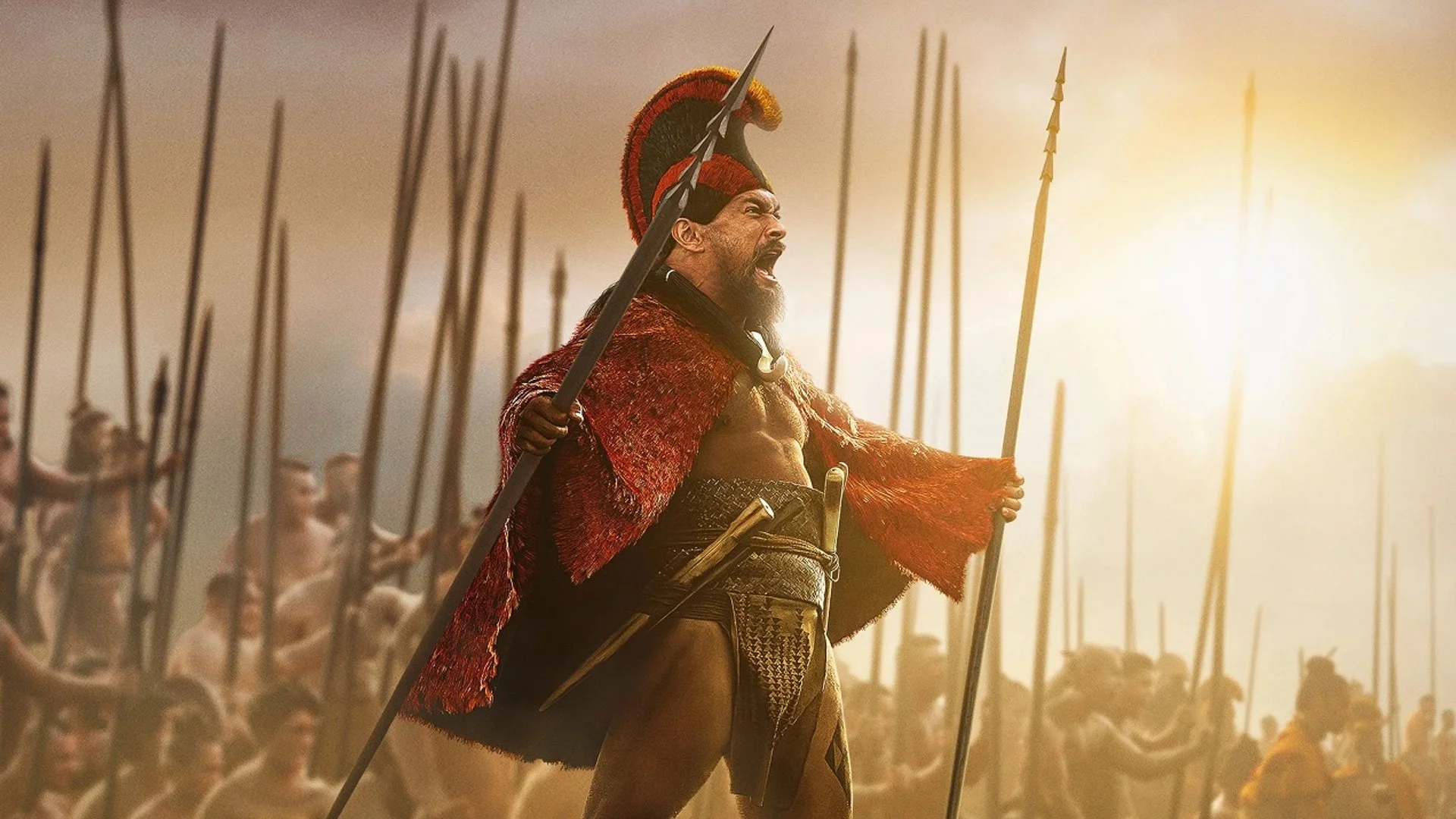Review: Jason Momoa's CHIEF OF WAR Is a Brutal, Beautiful Dive Into Hawaiian History
There’s something instantly captivating about watching a piece of history come to life when it's handled with care, authenticity, and a true reverence for the culture it represents. That’s exactly what Chief of War accomplishes.
Created by Jason Momoa and Thomas Pa’a Sibbett, both of whom have native Hawaiian roots, this Apple TV+ historical drama immerses you in a world that feels both foreign and familiar, grand and grounded, bloody and beautiful.
Chief of War is set at the turn of the 18th century, a time when Hawaii's four kingdoms were locked in brutal conflict. It follows a Hawaiian warrior on a mission to unify the islands before colonial forces arrive to reshape everything.
It’s an epic setup, and Momoa doesn’t waste a single frame. I’ve only seen the first two episodes so far as those are the only ones available at the moment, but I’m already all in. The story hits hard, the pacing keeps things moving, and the attention to cultural detail is incredibly impressive. This isn’t a half-baked historical drama, it’s a passionate, purposeful piece of storytelling.
Momoa commands the screen with a performance that might just be his best yet. There’s a raw intensity to his character, but it’s not just brute force, it’s layered, emotional, and rooted in his identity. Temuera Morrison also turns in one of his most powerful roles in years, bringing gravitas and depth to a world torn by violence and shifting loyalties.
The entire cast, filled with Polynesian talent including Luciane Buchanan, Te Ao o Hinepehinga, and Cliff Curtis, brings this slice of Hawaiian history to life in a way that feels both authentic and cinematic.
What really seals the deal for me is the language. Chief of War is largely told in the native Hawaiian tongue, and it adds a layer of immersion that you don’t often get in mainstream historical dramas. It feel like you’re experiencing the story the way it was meant to be told, through the voices of those who lived it.
Combine that with the series’ brutal, bloody action scenes, which go hard and don’t hold back, and you’ve got a show that feels enlightening and edge-of-your-seat intense.
The cinematography deserves a shoutout too. Every frame feels meticulously crafted, with Hawaii’s rugged beauty on full display. The camera doesn’t just show the islands, it captures their spirit. Whether it's a quiet moment of reflection or an all-out battle, the visual storytelling is just as compelling as the dialogue.
It’s a bit like Shōgun, but with a uniquely Hawaiian heartbeat. You can also draw the Game of Thrones comparisons if you want, but honestly, Chief of War stands on its own.
There’s also a deeper layer to this series that sticks with you… the idea of who gets to rule, who decides what a nation becomes, and how outside forces reshape identities and erase stories. Those themes hit differently when they’re told from an indigenous perspective, and it’s clear that Momoa and Sibbett are telling this story not just as entertainment, but as a way to reclaim and amplify a history that’s long been overlooked.
If you’re even slightly into historical dramas, or just looking for something fresh that’s got style, substance, and a serious amount of soul, Chief of War should absolutely be on your watchlist. It’s bold, it's brutal, and it’s one of the most ambitious shows Apple TV+ has put out in a while. We’re just two episodes in, and I already know this series is going to be something special.
